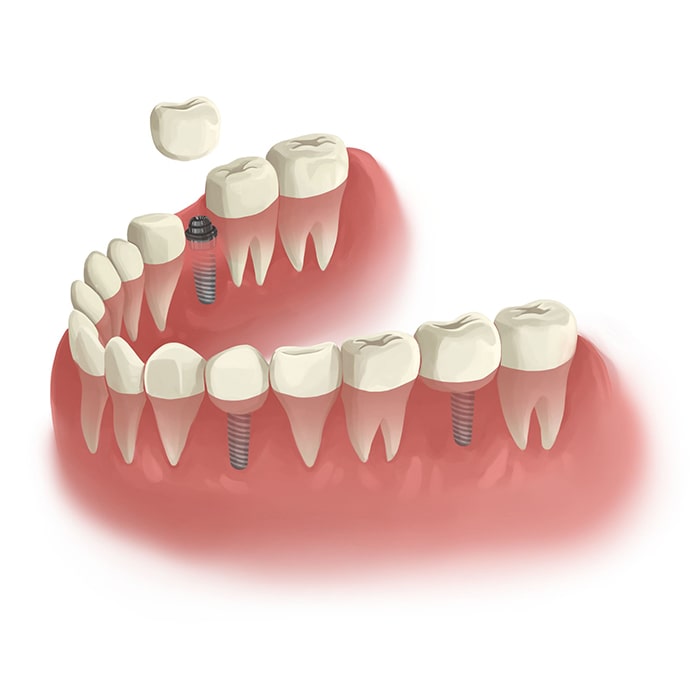Discovering Various Sedation Options for a Comfy Wisdom Pearly Whites Extraction Experience
The usage of sedation throughout such procedures has actually ended up being increasingly common to ease anxiety and discomfort. With an array of sedation choices offered, from local anesthetic to general anesthetic, each technique uses varying levels of leisure and discomfort control.
Local Anesthesia
Neighborhood anesthetic is a frequently utilized technique for numbing particular locations of the mouth during knowledge teeth extraction treatments. By carrying out a regional anesthetic, such as lidocaine, a dental professional can make sure that the patient continues to be comfortable and pain-free throughout the extraction process. Neighborhood anesthesia jobs by temporarily obstructing the nerves in the mouth, preventing them from sending pain signals to the brain. This permits the dental practitioner to do the extraction without creating any kind of discomfort to the client.
One of the key benefits of regional anesthesia is its targeted numbing effect, which implies that only the certain area being treated is impacted. This local strategy lessens the danger of systemic adverse effects and permits for a quicker healing post-procedure. In addition, local anesthesia is taken into consideration to be a regular and risk-free technique in dental care, with marginal threats entailed when carried out by a skilled professional.
Nitrous Oxide
Nitrous oxide, generally understood as chuckling gas, is a type of sedation often used in dental care to help people unwind during oral treatments. This sedation alternative permits the individual to continue to be responsive and mindful throughout the treatment while really feeling at ease and comfy.
When the mask is gotten rid of, the effects of the gas put on off swiftly, enabling individuals to resume their regular tasks without sticking around sedative effects. Nitrous oxide is ideal for clients of all ages, making it a versatile sedation choice for knowledge teeth removals and various other oral procedures.
Oral Sedation
Dental sedation, a pharmacological approach employed in dental care, includes the administration of sedative medications by mouth to generate a relaxed state throughout oral treatments. This form of sedation is frequently made use of for clients going through knowledge teeth removal to ease anxiety and discomfort. The medicines recommended for oral sedation come from a course of drugs called benzodiazepines, which have sedative, anxiolytic, and amnesic residential properties. Typically, the person takes the prescribed medication before the procedure, permitting adequate time for the sedative effects to take hold.
Unlike intravenous sedation, dental sedation does not need injections or needles, making it an extra comfortable option for people with a concern of needles. In addition, dental sedation is thought about risk-free and efficient when carried out by trained dental professionals.
IV Sedation
Provided intravenously by experienced physician, IV sedation is an effective approach used to cause a controlled state of deep relaxation and unfamiliarity throughout dental treatments. Unlike oral sedation, which can be unforeseeable in its impacts, IV sedation permits precise control over the level of sedation, making it an excellent selection for intricate treatments like wisdom teeth removals.
During IV sedation, a sedative medication is provided directly right into the bloodstream via a blood vessel, enabling it to work quickly and effectively. This approach ensures that the person remains not aware and comfortable of the treatment while still maintaining important features such as breathing and heart price.
One of the primary advantages of IV sedation is its ability to provide a deeper level of sedation compared to various other approaches, making it particularly appropriate for individuals with high levels of stress and anxiety or those going through considerable oral job (wisdom click for source teeth removal aspendale). Furthermore, the results of IV sedation commonly disappear gradually after the procedure, reducing the chance of grogginess or remaining adverse effects. Generally, IV sedation provides a risk-free and reliable option for making sure a comfy and trouble-free experience throughout knowledge teeth extraction

General Anesthesia
Having actually discussed the advantages of IV sedation for wisdom teeth extraction, the application of basic anesthetic supplies a different option for patients needing a much deeper degree of unconsciousness during dental treatments. General anesthetic causes a controlled state of unconsciousness, making certain the patient feels no pain or discomfort throughout the extraction process. This technique is especially beneficial for individuals with severe oral anxiety, complex surgical needs, or those going through numerous extractions concurrently.
General anesthetic is administered by an experienced anesthesiologist who carefully checks the client's important indications throughout the treatment. It entails the usage of intravenous medicines or inhaled gases to cause a state of unfamiliarity. While under basic anesthetic, the person will not know the surgery, experience any type of pain, or have any kind of recollection of the treatment later.
Although general anesthetic is secure when administered by qualified experts, it lugs a somewhat higher threat compared to various other sedation choices - wisdom teeth removal aspendale. Clients thinking about general anesthesia for wisdom teeth extraction must talk about the prospective dangers and benefits with their dentist or dental cosmetic surgeon to make an informed choice based upon their specific needs and case history

Conclusion
In verdict, various sedation alternatives are offered to make certain a comfortable wisdom teeth removal experience. Dental sedation and IV sedation offer deeper degrees of relaxation, depending on the client's needs.
Nitrous oxide is suitable for people of all ages, making it a flexible sedation alternative for knowledge teeth extractions and various other oral find more information procedures.
